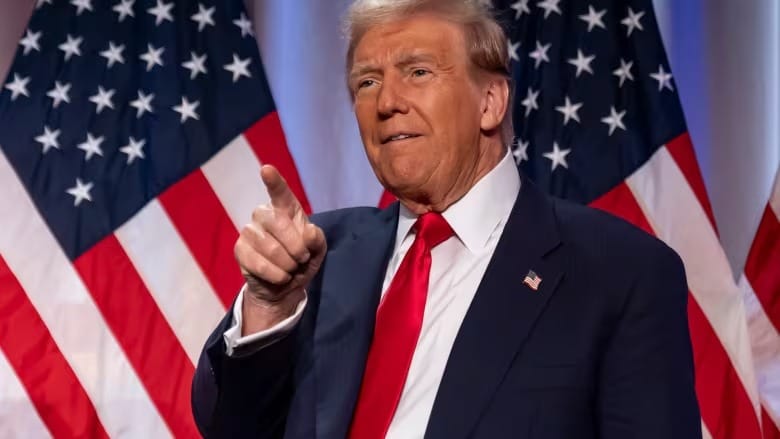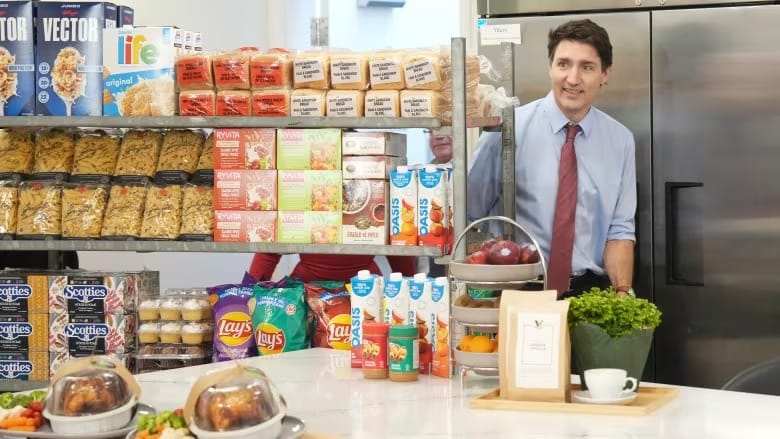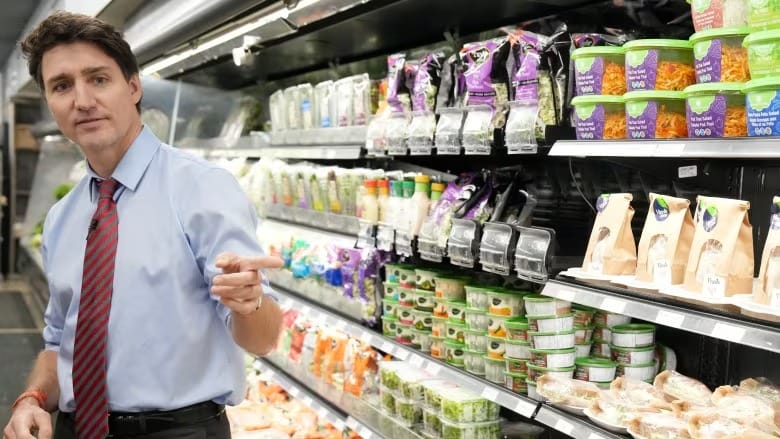Trump's appointees have criticized Trudeau, warned of border issues with Canada
Second Trump administration filling up with most loyal supporters

Donald Trump’s upcoming administration is drawing in some of his most steadfast supporters, many of whom have expressed criticisms of Canadian Prime Minister Justin Trudeau and concerns over security at the Canada-U.S. border.
According to one expert, there appear to be few advocates for Canada within the president-elect’s team. "I don’t see a whole lot of friends of Canada in there," said Fen Hampson, professor of international affairs at Carleton University in Ottawa and co-chair of the Expert Group on Canada-U.S. Relations.
As Trump assembles his administration, his appointments for foreign policy and border security roles signal a direction that has implications for Canada and beyond. Trump had pledged to introduce a minimum 10 percent tariff on imports, which the Canadian Chamber of Commerce estimates could shrink Canada’s economy by approximately $30 billion annually.
The president-elect has also been vocal about reducing aid to Ukraine and critiquing the United Nations, two areas strongly backed by Canada’s current government.
Some of Trump’s high-profile appointees have taken direct aim at Trudeau. Stephen Miller, set to serve as deputy chief of staff for policy, previously described Canada as “increasingly authoritarian” and called Trudeau “far-left.” Mike Waltz, selected as national security adviser, has also criticized Trudeau, particularly regarding his handling of China-related issues. Waltz recently voiced support for Canadian Conservative Leader Pierre Poilievre, saying he would "start digging Canada out of the progressive mess it's in."
Waltz, like Trump, has criticized NATO members that fall short of defense spending targets, which includes Canada. Trudeau has committed to meeting the NATO target of 2 percent of GDP on defense by 2032.
In other recent appointments, Trump named Mike Huckabee as U.S. ambassador to Israel. Huckabee has previously criticized Trudeau over incidents like the blackface controversy, accusing him of being two-faced. Meanwhile, Elon Musk, who has grown close to Trump, will co-lead a new “Department of Government Efficiency” to tackle waste in government operations, though he will not be a federal employee. Musk has expressed his own grievances with Trudeau on social media, alleging that Canada’s Online Streaming Act stifles free speech.
Immigration and border security remain prominent concerns for Trump’s team, with many appointees focusing on the northern border. Tom Homan, Trump’s newly appointed border czar, has labeled the U.S.-Canada border as a significant vulnerability, citing incidents of individuals on terrorism watchlists entering from Canada. Homan is also openly critical of Trudeau, saying Canada “needs a better man” in leadership.
Trump’s choice for Secretary of State, Florida Senator Marco Rubio, has also raised issues about the Canadian border. Recently, he criticized Canada’s acceptance of Palestinian refugees, suggesting the policy could impact U.S. security. Meanwhile, Elise Stefanik, who will serve as ambassador to the United Nations, has argued for securing the northern border, citing increases in human and drug trafficking.
Kristi Noem, another Trump loyalist, has been appointed to head Homeland Security. Although she once promoted the Canada-U.S.-Mexico Agreement, which was negotiated during Trump’s first administration, she has also claimed that Canadian businesses are relocating to her state due to stricter COVID-19 regulations in Canada.
Robert Lighthizer, Trump’s former trade representative, has served as an informal advisor for Trump’s transition team, and Deputy Prime Minister Chrystia Freeland said they continue to communicate. Some analysts suggest he could return in a trade role, though Hampson thinks it’s unlikely he’ll be the lead trade representative.
Concerns about potential tariffs loom large, with Hampson questioning if Canada will face a new tariff soon after Trump’s inauguration or if exemptions will be granted for specific sectors like energy. "Is he going to stick us with a tariff Day 1 or shortly after?" Hampson asked.
Experts advise that Canada should either take a steady approach, focusing on opportunities with the U.S., or respond with bold, strategic actions. In anticipation, Canada recently reactivated a cabinet committee dedicated to managing Canada-U.S. relations.
During a recent address in Fredericton, Trudeau reflected on past negotiations under Trump’s first term, emphasizing that Canada achieved the trilateral trade deal by aligning the interests of the two countries. "That is going to continue to be the case," he said.





